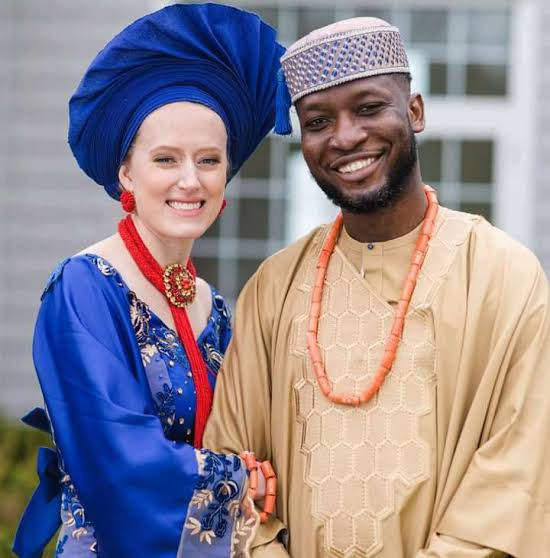Two Cultures, One Home: Navigating Marriage Between a Nigerian and a Foreigner
- Ajibade Omolade Chistianah
- Jun 25, 2025
- 3 min read

Cross-cultural marriages are no longer rare among Nigerians in the diaspora. As migration increases and people build lives abroad, love often finds its way across cultural and national boundaries. But building a shared life between a Nigerian and a non-Nigerian spouse comes with unique complexities that extend beyond language or cuisine.

From navigating traditional customs to reconciling contrasting worldviews, these unions require intentionality, adaptability, and deep mutual respect. Below are key dynamics that often emerge in Nigerian-foreigner marriages and how couples are managing them around the world.
Communication Is More Than Language — It’s Cultural Awareness
Cultural misunderstandings frequently arise not from language barriers but from differing interpretations of everyday behavior. Concepts like communal living, remittances, or extended family obligations are deeply embedded in Nigerian social norms but may seem unfamiliar or even uncomfortable to someone from a more individualistic society.
For example, the expectation that adult children contribute financially to relatives in Nigeria may clash with Western views on independence. Open dialogue and cultural literacy become essential tools for understanding each other’s values and priorities.
Family Traditions Can Clash — Or Complement
Nigerian traditions such as bride price ceremonies, naming rituals, or large family involvement in marital decisions can feel overwhelming or outdated to spouses from other cultures. However, these practices often serve symbolic and emotional roles that go beyond appearances.
Successful couples tend to approach such traditions as opportunities for cultural education, not conflict. While some opt for blended wedding ceremonies that honor both backgrounds, others choose to simplify or reinterpret traditional rites to reflect shared values.

Religion and Faith Practices Require Intentional Alignment
Faith is a central part of life for many Nigerians, and religious differences in marriage can create tension especially when raising children. The decision about which faith to practice at home or how frequently to observe religious rituals can lead to disagreement if not discussed thoroughly before and during the marriage.
Some couples take a pluralistic approach, allowing exposure to both faith traditions.
Others focus on shared moral values rather than strict doctrines. What matters is mutual respect and clarity on how belief systems will shape family life.
Food, Etiquette, and Everyday Life Reveal Deeper Cultural Contrasts
Food often becomes a symbol of home, identity, and compromise in intercultural households. Nigerian dishes like amala, egusi, and ogbono may be completely new to a foreign spouse, while dietary preferences or habits from their side may seem bland or unconventional.
Beyond food, daily habits such as hosting guests, greeting elders, or expressing affection may carry different meanings. Couples often find that small daily negotiations reveal much larger cultural differences, requiring patience and flexibility.
Parenting in Two Cultures Means Raising Global Citizens
Raising children in a Nigerian-foreigner household involves decisions about language, discipline, identity, and cultural exposure. Questions about which language to speak at home, whether to give the children Nigerian names, or how often to visit Nigeria are common.
Many families aim to create a blended environment that honors both heritages. Bilingual education, rotating holiday observances, and travel to Nigeria are common strategies used to ensure the children embrace both sides of their identity.
A common mistake in intercultural marriages is assuming that one culture is more “advanced” or “logical” than the other. This mindset leads to tension, condescension, or resentment. Successful marriages are built on the understanding that cultural differences are not deficits they’re dimensions.
When handled with maturity, cultural contrast becomes an asset, not a liability. It enriches family dynamics, broadens perspectives, and raises children who are more empathetic and globally aware.
Cross-cultural marriages between Nigerians and foreigners are not without challenges. But when both partners are willing to learn, unlearn, and evolve, the result is often a home that reflects the best of two worlds one where both cultures coexist, influence, and thrive.











Comments